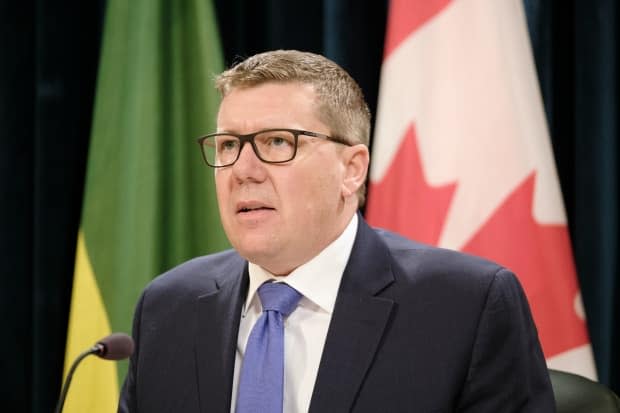Blasting 'pointless' election, premiers press Trudeau for greater autonomy, more health-care funding

Prime Minister Justin Trudeau's strained relationship with several of Canada's premiers appears to have taken an even sharper turn downward following the results of Monday's federal election.
Premiers reacted to the election results today with outrage, apathy and calls for unity following a divisive campaign.
Some are also renewing their demands for greater financial assistance and autonomy from Ottawa, suggesting they may feel emboldened now to seek greater concessions from Trudeau.
The Liberals will return with another minority government and the makeup of this Parliament is projected to be remarkably similar to the one that was dissolved when Trudeau called the snap election last month.
The strongest criticism of Trudeau's election gambit came from Saskatchewan Premier Scott Moe, one of Trudeau's most prominent foes at the provincial level.
"This was the most pointless election in Canada's history," Moe told reporters at the Saskatchewan legislature in Regina.
"The prime minister spent over $600 million of your dollars, taxpayer dollars, and five weeks further dividing the country to arrive at almost the same result that we had two months ago in the House of Commons."
WATCH | Scott Moe says 2021 election was pointless:
Ontario Premier Doug Ford struck a more conciliatory tone.
"This has been an extremely difficult and divisive election and I would like to take this opportunity to urge unity," Ford said in a media statement, pointing to pandemic policies and vaccine certificates as the source of those divisions.
Ford was among four premiers who reached out to Trudeau following the election, the prime minister said in a Tuesday evening tweet.
Alberta Premier Jason Kenney, who became a focal point of the campaign in its final days due to his government's handling of COVID-19, urged the Liberal government to step up health care funding as Alberta faces its worst stretch of the pandemic.
"One key lesson of the COVID era is that we must expand the capacity of Canada's health-care system," Kenney said in a media statement.
Premiers renew demands for health care funding
Moe said that instead of triggering an election, Trudeau should have instead focused on strengthening Canada's health-care system and helping the provinces deliver vaccines to control the fourth wave of the COVID-19 pandemic.
He repeated calls by the Council of the Federation — a group composed of Canada's 13 provincial and territorial premiers — for Ottawa to increase health transfers to the provinces by $28 billion this year.
The council's chair, British Columbia Premier John Horgan, echoed that demand in his own news release today.
"I look forward to working in collaboration with the other premiers and the prime minister to address the challenges the pandemic has placed on our people, our economy and our health care system," Horgan said.
WATCH | Nova Scotia Premier Tim Houston discusses election results on CBC's Power & Politics:
Trudeau promised $25 billion in new health-care funding during his campaign. The money would come with some strings attached, such as hiring targets for new health care workers and higher wages for personal support workers.
Legault still 'hates' plan for national LTC standards
Conditions like those have irritated Quebec Premier François Legault. He said during the election campaign that his preferred result would be a Conservative minority government, since Erin O'Toole did not include similar conditions in his funding offer to the provinces.
Legault said this morning that he's already spoken with the re-elected prime minister and that nothing essential has changed in the relationship between his government and Ottawa.
Legault said Quebec's demands for greater autonomy from Ottawa remain and include the long-term care sector — for which Trudeau has proposed new national standards of care.
"There's nothing new. He knows that I hate the conditions that he wants to put, for example on our [long-term care]," he said.
Legault and Bloc Québécois Leader Yves-François Blanchet have rejected the prospect of national standards, despite shocking reports from some of Quebec's LTC facilities during the pandemic.
"He knows very well that I want him to respect Quebec jurisdiction, so there's nothing new and nothing that was not said many times before," Legault said of his brief conversation with Trudeau.
WATCH | François Legault says his demands have not changed following the federal election:

